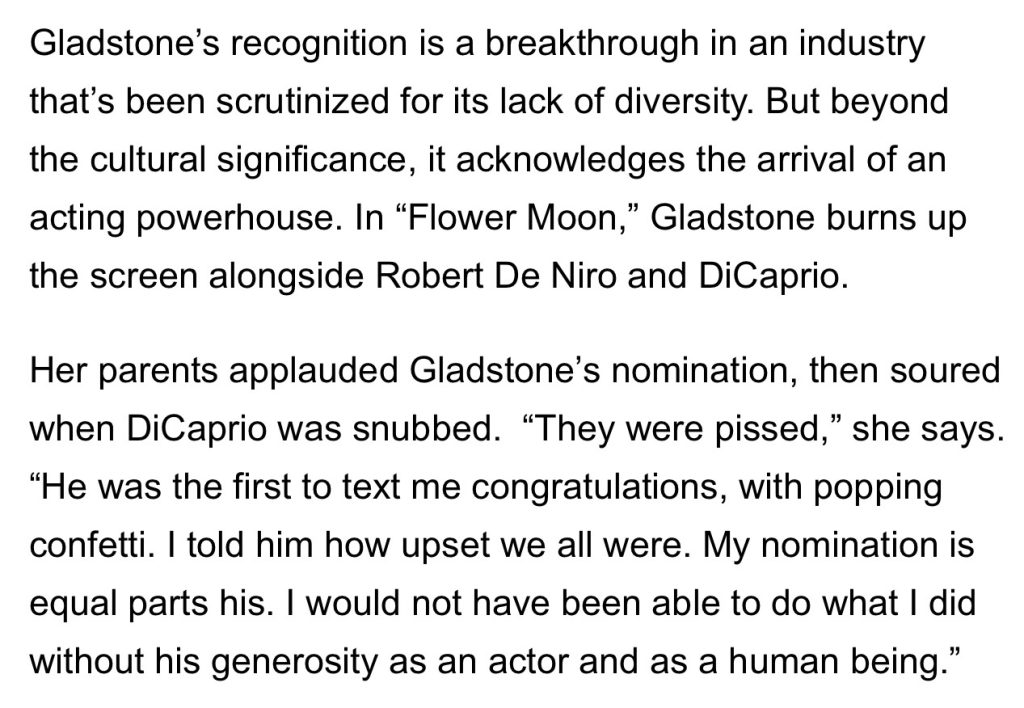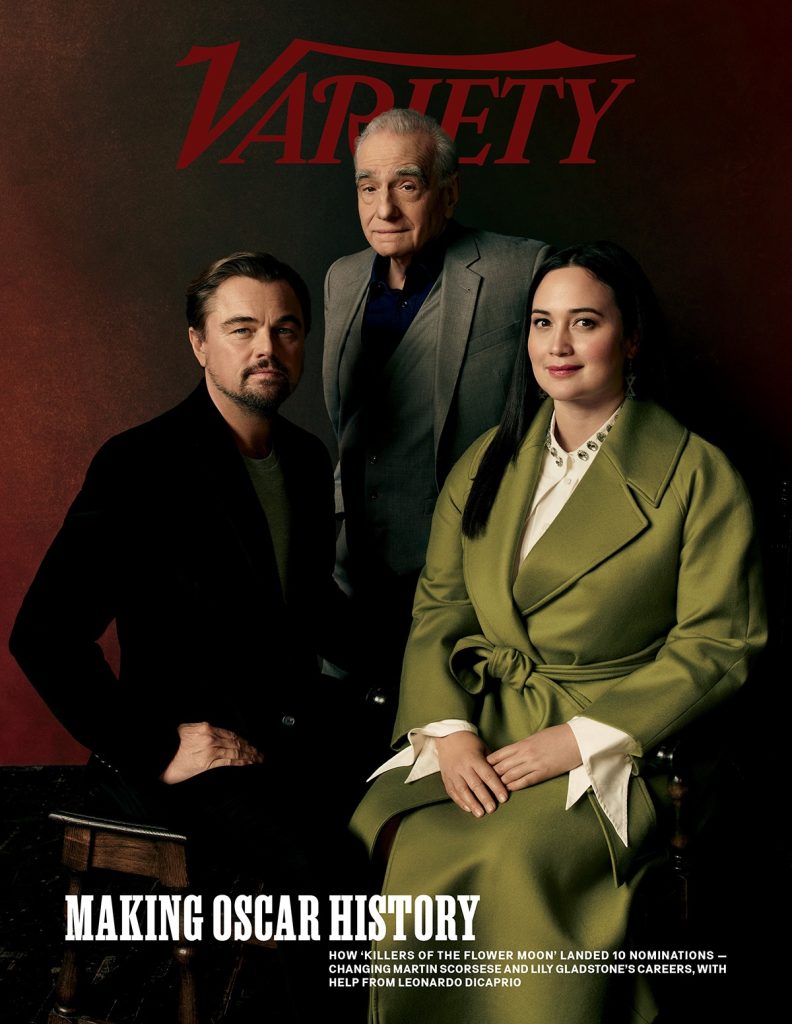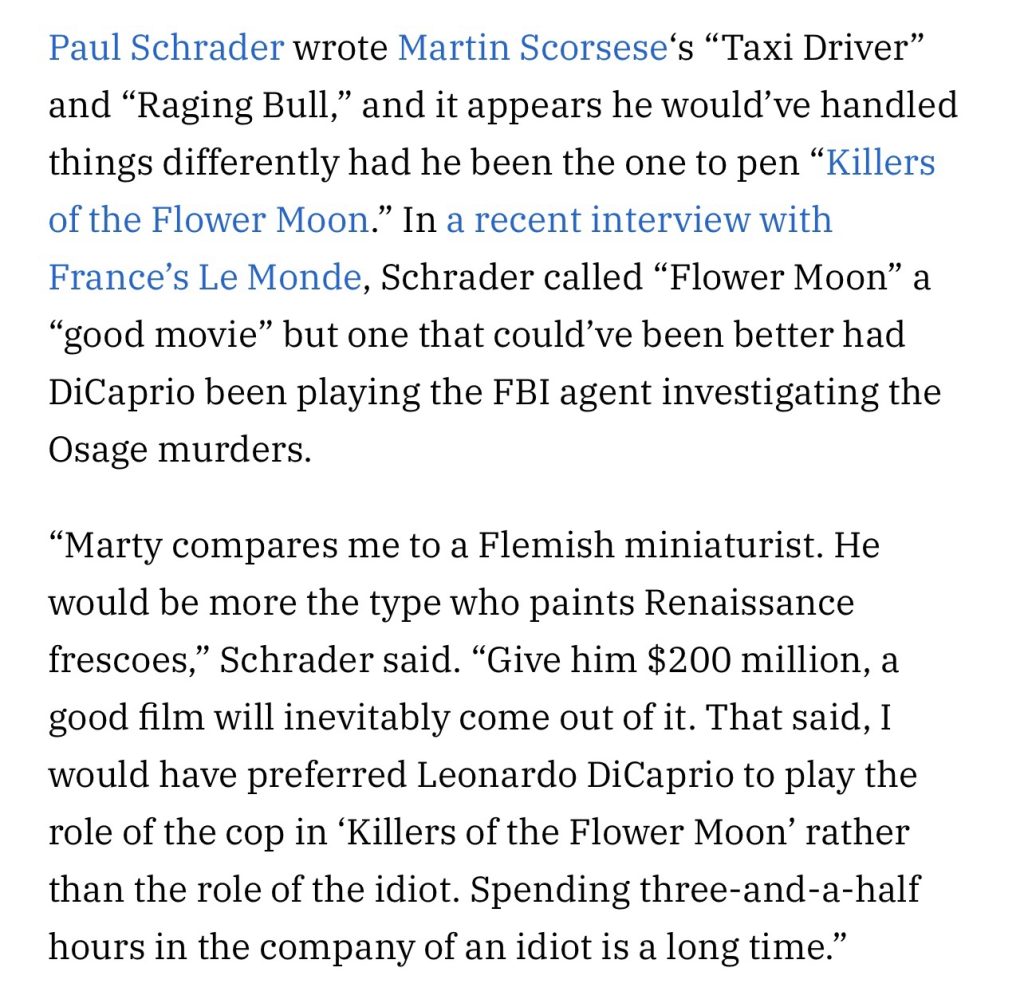Greta Gerwig and Noah Baumbach for Best Adapted Screenplay. America Ferrrara for Best Supporting Actress.

Greta Gerwig and Noah Baumbach for Best Adapted Screenplay. America Ferrrara for Best Supporting Actress.

…life wouldn’t have a great deal of meaning. Okay, it would obviously deliver a certain amount on its own weight and steam, but movies bring it all into focus, if you catch my drift.
This may be the greatest George Lucas quote I’ve ever read. It makes me even more sorry that he’s worn so many godawful flannel shirts.

From Jeanine Basinger and Sam Wasson’s “Hollywood: The Oral History” (‘22).
…but this is an interesting photo, and saying this doesn’t make me a terrible person. And look at those hands.

I’m watching episode 3 of True Detective: Night Country, and despite my attachment to the legend of Jodie Foster I really am done with it. Just not for me, bruh. It’s too dark, too buried, too “lemme outta here”, too labrynthian, too snowy, too grimy, too scowling, too complex and drawn out…too much of a nativist celebrationist thing, too chanty, too indigenous, too face-painty, too cheek-studdy, too “all the men except one good-looking young cop are appalling or fleshy or ugly rednecks or deep-down diseased”…too rank-smelling, too unattractive, too downish, too frostbitten, too sullen, too grubby, too “ya wanna fuck?”, too haunted and too many hoodie parkas…angry women, bruised women, resentful women, horrified women, dead women, hell-bent women…fine, good, you can have it…later.
…as reported by Paul Schrader in a Facebook thread. Devotional comments by all, and then along came Davey Holmes…
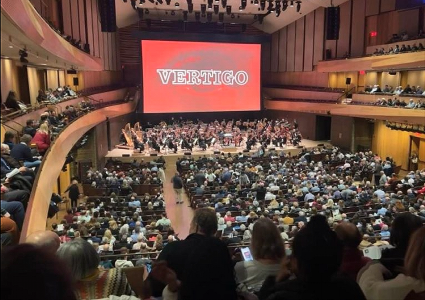
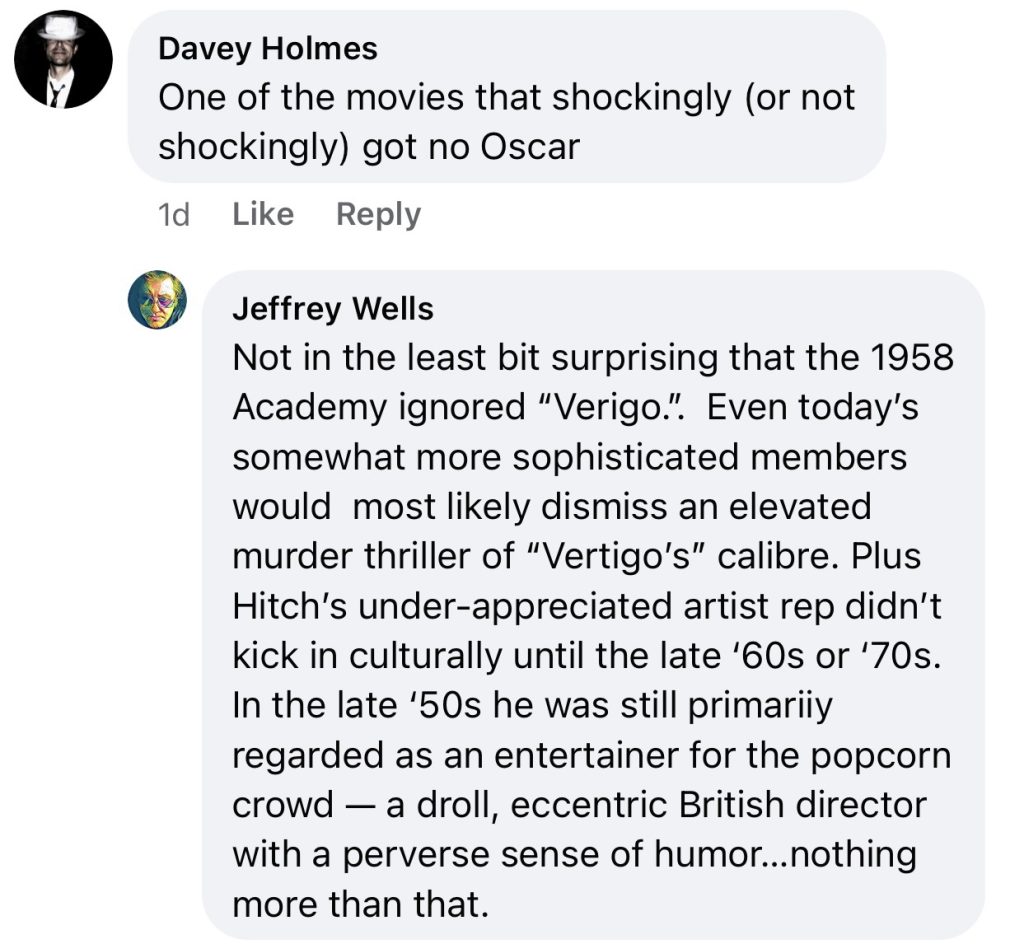
The vast majority of well-regarded films shot in frigid temperatures share a basic visual trait — snowscapes.
The highest ranking members of this fraternity include Fargo, The Revenant, The Hateful Eight, The Dead Zone, the ‘51 and ‘82 versions of The Thing, The Shining, Cliffhanger, Snowpiercer, Everest, Misery, Society of the Snow and, last but not necessarily least, the currently unfolding True Detective: Night Country.
But there have been damn few shot in miserably cold climes that aren’t swamped in whiteness, and there may, in fact, be only two of these: Elia Kazan’s On The Waterfront (‘54) and William Freidkin’s The French Connection (‘71).
I’m not saying there aren’t more that qualify in this regard; I’m saying I can’t think of any.
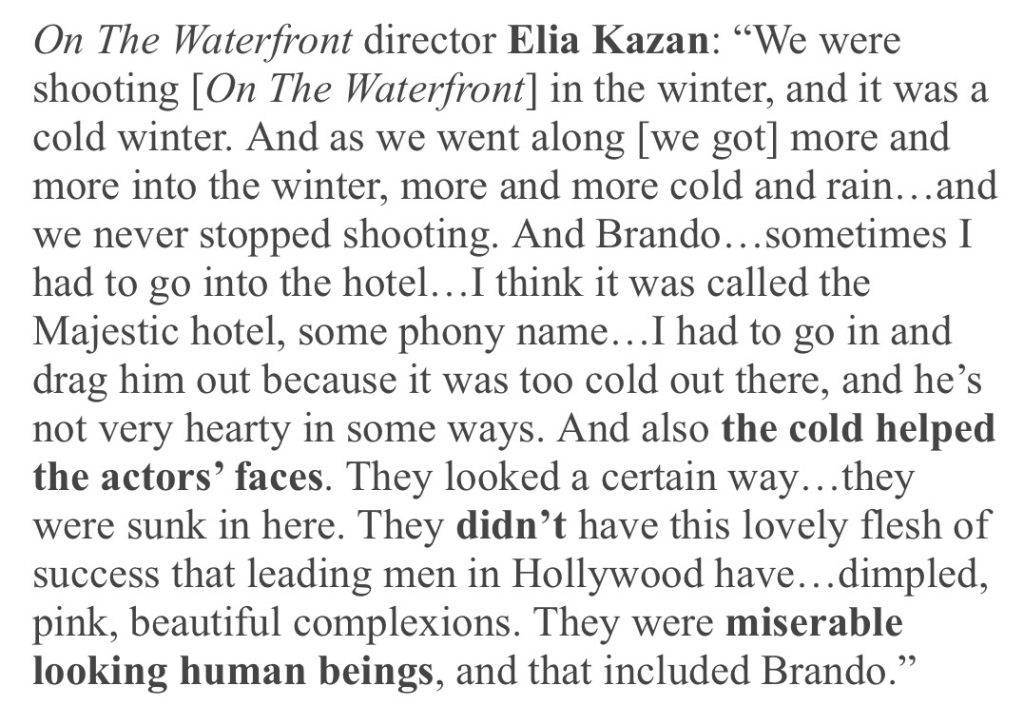
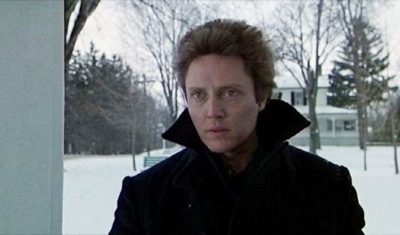
I realize that only a morally bankrupt admirer of a director who behaved selfishly and hurtfully 45 years ago would even flirt with paying to see Roman Polanski’s WWII-era masterpiece, but…

Native American history, identity and (if the New Academy Kidz along with Variety’s Matt Donnelly have their way) inevitability.
Sorry but the concept of merit needs to step aside; bigger, more important social fish need to be fried.
But Leonardo DiCaprio never had a shot at a Best Actor nom. No way. Certainly not after that “idiot” quote from Paul Schrader got around.
